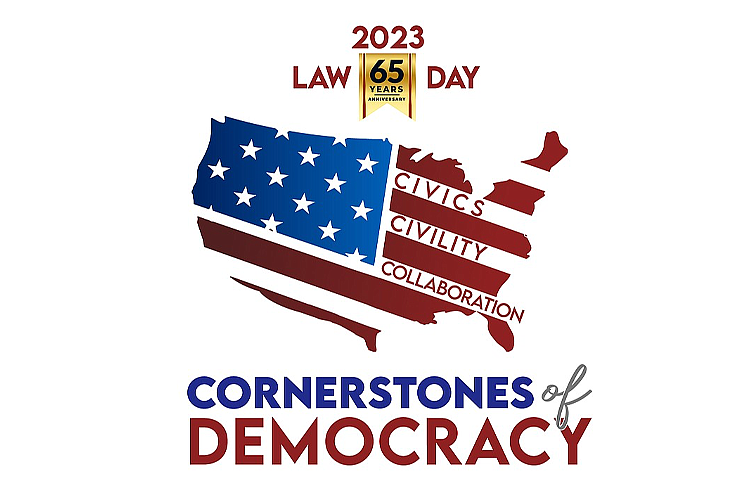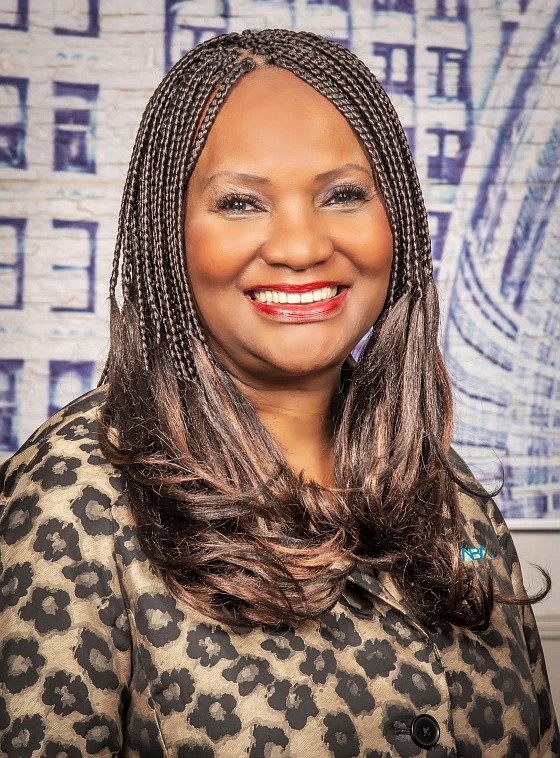
On April 27, the Law Library of Congress and the American Bar Association hosted an online panel discussion focusing on the 2023 Law Week’s theme: “Cornerstones of Democracy: Civics, Civility, and Collaboration.”
It focused on how jurisdictions have worked to increase bipartisanship, civics education and civic engagement.
Speakers included moderator Nicholas Allard, dean of the Jacksonville University College of Law; American Bar Association President Deborah Enix-Ross; Law Library of Congress Senior Foreign Law Specialist Ruth Levush; and Law Library of Congress Foreign Law Specialist Kayahan Cantekin.
National Law Day Chair Sharon Stern Gerstman provided opening remarks.
“In recent years, tensions in our democratic system have revealed deep divisions in American society,” Stern Gertsman said.
“These divisions are aggravated by an insufficient understanding of the Constitution and the way government works, incivility, public discourse and partisanship.”
She said America is not unique in that respect but was hopeful that placing an international focus on the panel discussion might lead to inspiration from around the world.
“We hope to learn from our allies’ experience and put it to good use in our conversation,” she said.
Behind the theme
Enix-Ross said she chose this year’s Law Day theme because the “goals of the Cornerstone Project are to foster community dialogue, to improve understanding of the rule of law, and to help restore confidence … in our democratic process and in our democratic institution.

“I think the way we can do that is we have to engage the public with our democratic institutions in a peaceful and respectful way, so that’s the civility,” she said.
“We have to engage from the standpoint of Constitutional knowledge, that’s the civics piece, and we have to act in concert with others.”
Enix-Ross said the concepts of civics, civility and collaboration can and should extend outside of the legal community.
“Although we should be leading in this area, we need to partner and collaborate with other professions as well to make sure we are using all of our tools and engaging all stakeholders in this very important work.”
She said a lot of her “non-lawyer” friends recent began asking questions that indicated a lack of civics knowledge and a civil disconnect, prompting her to develop the Cornerstone theme.
“We almost have to go back to basics in explaining to our fellow citizens how they can engage in our society in ways that are productive and not destructive, and really the art of civility,” she said.
“Even though we may have differing viewpoints, we can still come together and discuss our differences and have the ability to move forward in productive ways.”
Enix-Ross said year-round ABA activities will support the Cornerstone movement, including college visits and conversations with organizations, including the Center for Strategic and International Studies and an upcoming pilot program with rental company Nationwide that is designed to incorporate civics in the workplace.
Fostering engagement
Allard asked Cantekin, who has worked on surveys and reports on Turkey and Greece, what methods other jurisdictions use that foster civics engagement.

He said that among the 22 jurisdictions he has studied, each infused civility and citizenship in their education systems.
Topics, he said, often focus on history, diversity and minority cultures, but also the civic and political organizational structure of each state, and the rights of each citizen.
“We found interesting differences between each country, but the essential insight is that all of them were offering civics education in their curricula,” he said. “Civility is an art, but it can be taught.”
He said the United Nations also plays a role in looking at how countries around the world are making progress toward achieving U.N. sustainability goals and providing measures, including how students understand issues related to citizenship.
“Countries are starting to see civic education as an important part of their development strategies and their standings in the global community,” he said.
Crisis in Israel
Levush, who has researched Israel, said the country is experiencing the most serious internal crisis in its history. She said proposed legal reforms recently “brought to light deep disagreements.”
The reforms would overhaul the judicial system and limit the authority of the high court to conduct judicial review of legislation and executive actions.
“The reforms have created messy public opposition,” Levush said.
“The fierce debates over the proposed reforms reflect different views regarding the fundamentals of civics in Israel.
“Consideration over these issues raises the question of whether the Israeli public has the tools to form opinions on these matters.”
However, Levush said civics education also is fundamental in the education system there. While the reforms are controversial, she said students will at least understand them and the opposing views.
“In observation of our panelist,” Allard said. “I guess it’s good company to realize things are complex outside of the United States. We observe there are similar difficulties and challenges around the world and in other places.”
He said Levush and Cantekin concluded civics education can be taught and it’s learnable, though they noted there is less of it in the United States.
“But lawyers and law professors are ideally suited to fill in and provide that information,” he said. Every lawyer must fill in the gap to do what can be done to educate the public about how lawyers work.”